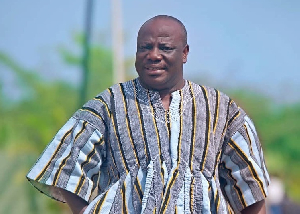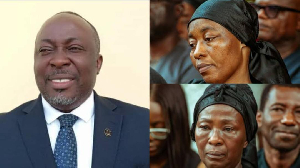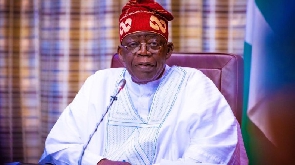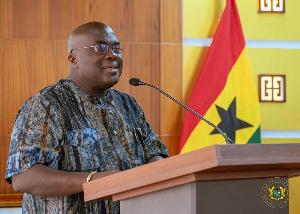GOV’T Demonstrates commitment to fighting poverty PRESENTS BUDGET OF HOPE
By Osumanu Al-Hassan
Government will in the next three years provide permanent buildings for schools currently operating under trees and also expand facilities in schools still running the shift system. In line with this initiative, provision has been made to construct and furnish 165 school buildings to accommodate primary and junior high schools and 250 structures for kindergartens.
The initiative is linked to job creation in the deprived communities where the under trees schools are found with construction localized and undertaken by the communities themselves.
This was contained in the 2010 Budget Statement and Economic policy of Government for the 2010 fiscal year and delivered by the Minster for Finance and Economic Planning, Hon. Kwabena Duffuor to Parliament yesterday.
According to him, the initiative will provide about 14,700 jobs for masons, carpenters and other artisans while providing better school facilities to some 45,000 pupils.
Mr. Duffuor noted that investment in people essentially refers to investment in education and health and stressed that education is fundamental in any society. He stated that any institutional arrangement for basic education should be judged by its production of high quality learning and equitable distribution. He disclosed that there are 43 Kindergarten Schools, 382 primary Schools and 99 Junior High Schools in the country that are still running shift systems and added, €œIt is unacceptable that kids are studying under trees in 21st Century Ghana. Effective solution to the education problems requires more resources to be directed to the sector and to learn effectively, children need affordable access to decent classroom and laboratories, learner and teacher support materials, and quality instruction.€
Government, he said, recognizes the need for quality education for all children irrespective of where they reside and in fulfilment of the President’s pledge, modalities for rewarding teachers who accept posting to deprived areas are being worked out for implementation in the year 2010.
Dr. Duffuor mentioned that in the health sector, government will focus on scaling up all existing interventions to improve access to health, particularly the Community Based Health Planning and Services (CHPS) Compound Program and added that to this end, the CHPS Compound Program will be expanded by constructing additional 29 compounds to give access to health services for about 14,500 people.
In the area of poverty reduction, he mentioned that an estimated amount of GH¢2.3billion will go to support basic education, primary healthcare, poverty-focused agriculture, provision of rural water, construction of feeder roads and rural electrification. €œAn amount of GH¢25.9 million has also been provided to support electricity consumption by poor households, popularly known as the Electricity Lifeline Payments. For safety net programs, GH¢41.5 million has been provided by the Government from the Consolidated Fund,€ he disclosed.
He stated that in fulfilment of a commitment in the NDC manifesto to adopt special measures that will accelerate the pace of development of most deprived areas and narrow the development gap between these areas and the rest of the country, government will expand the geographical coverage of the Northern Development Fund to include the entire Northern Savannah and also set up an authority to coordinate and facilitate the implementation of a comprehensive development framework for the Northern Savannah.
In the area of agriculture, the Minister said Government’s strategy for the sector is premised on the knowledge that agriculture has significant potential to grow beyond the levels experienced in recent years; that the high agriculture growth can only materialize through modernization and diversification, driven by public investment and productivity; and that modernizing agriculture can change the face of rural Ghana and poverty.
The overall objective of the agriculture modernization, he said, is to significantly increase the scale of production and productivity, enhance food security, create employment opportunities, and cut down on the use of foreign exchange for food imports.
He assured that Government will continue to import subsidized fertilizers to enable farmers improve upon their yields, adding that, €œThe agricultural sector’s modernization and diversification commenced last year and will continue in 2010 and the medium term. We will intensify the promotion of crops, such as mango, pineapples, cashew, sheanuts, and soya beans through large-scale commercial farming.€
source:daily Democrat
Business News of Friday, 20 November 2009
Source: Daily Democrat












